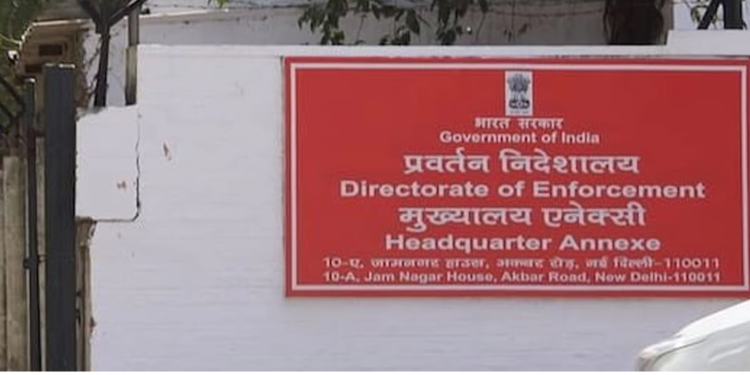The Enforcement Directorate (ED) overstepped its jurisdiction by probing illegal sand mining in Tamil Nadu, as mining is not a scheduled offence under the Prevention of Money Laundering Act (PMLA), the Madras High Court recently held.
The court quashed the case registered by the ED against a group of sand mining contractors in Tamil Nadu, ruling that the agency had acted outside its jurisdiction since mining is not listed under the scheduled offences of the PMLA.
In an order passed on July 16, a bench of Justices MS Ramesh and Sunder Mohan stayed the ED’s action against the contractors and quashed the provisional attachment orders against them. The court directed that the properties attached by the ED be released.
“We are thus of the view that unless information regarding any case of a scheduled offence is registered and such an offence has generated proceeds of crime, which is dealt with by the petitioners, no action can be initiated. The materials collected and the reasons shown in the Provisional Attachment Order, even if accepted to be true, only suggest that the respondents have unearthed large-scale illegal sand mining which may have generated illegal money,” the court said.
The case involves alleged illegal sand mining across five districts in Tamil Nadu. The ED had been investigating the matter since September last year, claiming that illegal sand mining caused a loss of up to ₹4,000 crore to the state exchequer.
The petitioners, contractors K Govindaraj, Shanmugam Ramachandran, and K Rethinam, approached the court seeking to quash the ED proceedings on the grounds that the central agency lacked jurisdiction to initiate action under the PMLA.
They argued that the FIRs, which led to the ED’s proceedings, did not reveal any proceeds of crime and that the ECIR and provisional attachment orders suggested the ED had assumed the role of investigating illegal sand mining without any FIR for a scheduled offence indicating the generation of proceeds of crime.
The High Court agreed with the petitioners’ submissions. It noted that the ED had assumed a scheduled offence had been committed and had generated proceeds of crime but failed to specify the exact scheduled offence committed by the petitioners.
“That apart, they have also not specified whether an FIR has been registered for a scheduled offence committed by either the petitioners or someone else whose proceeds of crime are held by the petitioners. Above all, the exact proceeds of crime have not been determined,” the court said.
The court further noted that in accordance with Supreme Court judgments, in the absence of any scheduled offence resulting in proceeds of crime, the ED cannot assume jurisdiction to initiate action under the PMLA.
“We would also make it clear that the respondents have every right to initiate action to ensure that the scheduled offence is registered and investigated. Until such time, the properties of the petitioners cannot be subjected to attachment and the respondents cannot initiate any action under the PMLA. One cannot put the cart before the horse. Therefore, we find the impugned actions, challenged in the writ petitions, to be without jurisdiction and they are thus quashed,” the court said.
The court ordered the ED not to take any action against the petitioners unless a scheduled offence is registered.
“The respondents shall not continue further action pursuant to the Enforcement Case Information Report (ECIR) regarding the petitioners until the statutory and legal requirements we have outlined are complied with. The provisional attachment orders challenged in the writ petitions are quashed,” the court ordered.
In November last year, while hearing related matters, a bench of Justices SS Sundar and Sunder Mohan had termed the ED’s probe into the sand mining allegations in Tamil Nadu a “fishing expedition.” At the time, the bench had stayed the ED’s summons to five district collectors to share details of the quantum of sand mining in their respective districts.

















